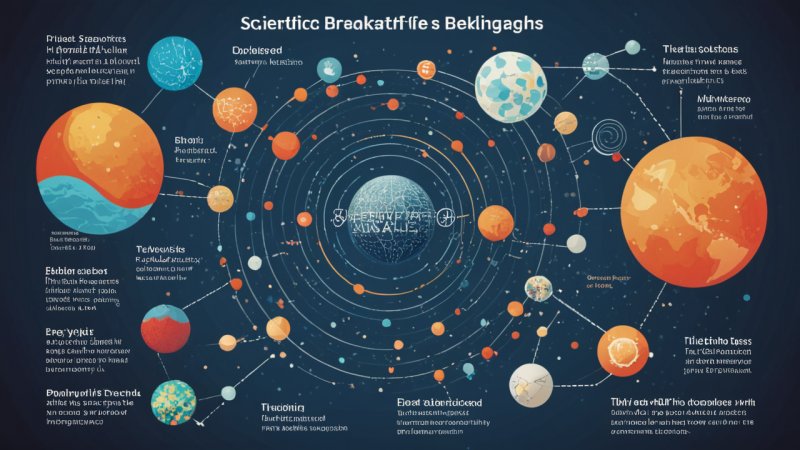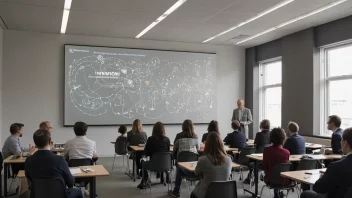Over the past decade, the realm of scientific research has witnessed remarkable breakthroughs that have reshaped our understanding of the world and improved our lives. From advancements in medical treatments to groundbreaking technologies, these discoveries have the potential to influence various sectors such as healthcare, environmental conservation, and engineering. Here, we dive into some frequently asked questions about these significant scientific milestones.
What are the most impactful medical breakthroughs of the decade?
One of the most significant medical breakthroughs has been the development of mRNA vaccines, particularly against COVID-19. These vaccines, which were created at unprecedented speed, utilize messenger RNA to instruct cells to produce a protein that triggers an immune response. This technology not only provided a solution to the pandemic but also holds promise for future vaccines against various diseases.
How has artificial intelligence changed scientific research?
Artificial intelligence (AI) has revolutionized scientific research by enhancing data analysis, enabling predictive modeling, and automating complex processes. For instance, AI algorithms can analyze vast datasets in genomics, leading to accelerated discoveries in personalized medicine. AI's ability to identify patterns and make predictions is transforming fields like climate modeling and drug discovery.
What role has CRISPR played in genetic research?
CRISPR-Cas9 technology has emerged as a groundbreaking tool in genetic research, allowing scientists to edit genes with precision and efficiency. This gene-editing technology has opened new avenues for treating genetic disorders, advancing agricultural practices, and conducting fundamental research on gene function. Its potential for ethical and societal implications continues to be a critical area of discussion.
What are some key advancements in renewable energy technologies?
Renewable energy technologies have seen significant advancements, particularly in solar and wind energy. The cost of solar panels has decreased dramatically, making solar power more accessible to households and businesses. Additionally, wind turbine technology has evolved, resulting in more efficient energy generation with larger and more effective turbines. These developments are vital for combating climate change and transitioning to sustainable energy sources.
How has the understanding of climate change evolved in the past decade?
The past decade has brought new insights into the impacts and urgency of climate change. Research has increasingly highlighted the consequences of climate change on biodiversity, weather patterns, and human health. The Intergovernmental Panel on Climate Change (IPCC) has published critical reports emphasizing the need for immediate action to limit global warming and its impacts, which has influenced international policy and public awareness.
What are the latest developments in neuroscience?
Neuroscience has made significant strides in understanding the human brain, particularly through neuroimaging techniques and studies on neuroplasticity. Researchers have uncovered how the brain can reorganize itself, leading to breakthroughs in rehabilitation for stroke patients. Additionally, studies on the gut-brain connection have provided new insights into mental health and its relationship with physical wellbeing.
What innovations have emerged in materials science?
Materials science has witnessed the creation of innovative materials such as graphene, which is known for its exceptional strength and conductivity. Researchers have developed applications for graphene in electronics, energy storage, and even medical devices. Furthermore, advancements in 3D printing technology have allowed for the production of complex structures with tailored properties, revolutionizing manufacturing processes.
How has social science research contributed to our understanding of society?
Social science research has played a crucial role in understanding and addressing issues such as inequality, migration, and public health. The analysis of big data has provided insights into social behaviors and trends, influencing policy decisions. Recent studies during the COVID-19 pandemic highlighted the importance of community resilience and the socio-economic factors affecting public health outcomes.
What are the implications of these scientific breakthroughs for the future?
The breakthroughs of the past decade have laid a foundation for future innovations and societal improvements. They demonstrate the importance of interdisciplinary collaboration and the need for ethical considerations in scientific advancements. As we move forward, continued investment in research and education will be crucial for harnessing these discoveries to address global challenges.
In conclusion, the scientific breakthroughs of the past decade have not only expanded our knowledge but have also paved the way for transformative changes in various fields. As we look to the future, it is essential to remain engaged with these developments and their implications for society as a whole.






